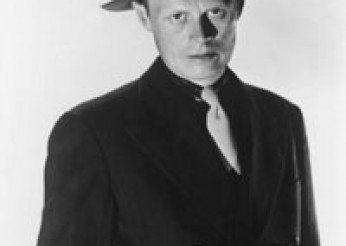This is a representative program not just because it includes the most famous Czech films from that period, such as almost all of Forman's Czech opus, Ivan Passer's Intimate Lighting, Jiři Menzel's Capricious Summer and the first Czech Oscar winner - Jan Kadar and Elmar Klos's The Shop on Main Street but also because it will present many other films that come very close to these most famous achievements…
Of the seventy years of the Czechoslovakian Republic, the 1960s were the most interesting and most valuable years for Czechoslovakian cinema. The gradual decay of Stalinism brought a certain liberalization that Slovak and Czech filmmakers began to use for a more critical approach to contemporary issues and the investigation of new and more original forms of film expression. However, the authoritative communist politicians, who remained in power for quite some time, tried to hinder the filmmakers’ attempts administratively. As in other socialist countries filmmakers became leaders of critical exploration of the existing situation, which attracted more audiences to the theatres. In this golden age Czechoslovakia became one of the leading filmmaking countries in the world. This representative program is valuable not only because it includes the most famous Czech films from that period, such as almost all of Forman's Czech opus, Ivan Passer's Intimate Lighting, Jiři Menzel's Capricious Summer and the first Czech Oscar winner - Jan Kadar and Elmar Klos's The Shop on Main Street, but also because it will present many other films that come very close to these most famous achievements. So, we will have the chance to see also Kadar and Klos' film Death Is Called Engelchen, teresting because it does not tell a black and white war story and also because it has a complex narrative structure and treats time in an original way on film, all of which helps to create a powerful portrayal of the horrors of war. Karel Kachyna made one of the most effective films of that period, Coach to Vienna, and Karel Zeman’s The Stolen Airship us that this internationally acclaimed animator (he often combined animation and live actors) also helped his home country’s cinema to establish itself on the international scene.
Also very interesting are films by directors who are mostly unknown to younger audiences (even to those who are especially interested in the Czech film miracle, a name often used for that period in Czech cinema), and which point to a rarely mentioned characteristic of Czech cinema. Unlike in most other, and not only socialist, countries in which it was impossible to make a film without government funding, in Czechoslovakia only a fourth of forty films that were made each year at the time were funded by the government. The others were mostly genre films intended mainly for entertainment, and achieved quite respectable results that even surpassed an exceptional professionalism that was rarely even questionable. Petr Schulhoff’s Vrah skryvá tvár a great criminal film clearly inspired by Simenon’s novels. The main character, an inspector portrayed by Rudolf Hrušinský, seems even more authentic than any other actors I have ever seen play inspector Maigret (even though that is not his name in the film). Lady on the Tracks is one of Ladislav Rychman’s musicals that, unlike dreamy Hollywood musicals of that time, achieved success by portraying ordinary people in their daily routines and turning them into very original and effective musical sequences. Václav Vorliček, author of the The End of Agent W4C film that parodied James Bond movies, established himself as a master of criminal comedy with the comic book Who Would Kill Jessie? (Kdo chce zabít Jessii, 1966), that was also successful in our movie theaters in the 1960’s. Jiři Sequens’ Atentat a story about the 1942 assassination in Prague of the Nazi Governor of Czech and Moravia. This film showcases much more professional standards than popular action films with topics from WW II that were made in Yugoslavia at the same time.
Moreover, at the same time there were many quality films for children made in Czechoslovakia. So finally, we can conclude that this is a very well thought out and organized cinema that probably would have stayed on the top of world cinema for much longer, had it not been for the intervention of the Warsaw pact in 1968. This event drastically stopped the liberal and freedom rights in the whole country and caused many important authors to leave the country. In spite these changes, there were occasionally more good films made in this country but its cinema never again managed to reach its peak it was at during 1960s. (Tomislav Kurelec)
